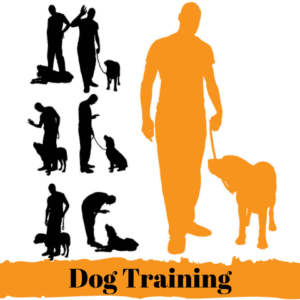I’m sure you will agree with me when I say there are few things cuter than puppies playing together!
Being confident in reading your puppy’s behavior means you can keep your pup safe at puppy playdates.
Socialization sessions during puppyhood help your puppy learn their doggy manners and gain confidence with canine pals.
Knowing how your puppy communicates with others and reading the signs of playfulness, fear, and aggression is an important way to ensure your puppy’s safety and happiness during these sessions.
I’ve put together a snippet list of the behaviors that are displayed.
However, if you are looking for a method to quickly calm your dog down, check out the Dog Calming Code Video.
Reading Your Puppy’s Behavior
As your puppy plays you will notice different behaviors repeated over and over.
Being able to interpret these is the key to understanding how your dog may be feeling.
The Puppy Play bow – Perhaps my favorite (and the cutest!) of the puppy behaviors!
As the name suggests this is when one puppy “bows to the other.”
Your puppy will stand with its front legs out, chest to the ground, and bottom in the air.
This is an invitation to play!
Hackles up – Although this can look intimidating, this does not automatically mean aggression.
Watch your puppy closely, often this is just excitement as your puppy learns how to communicate and play.
The Head Over – This is a common dominant action where a puppy will place their head over the other dog’s neck.
Although this may seem aggressive, the head over is normal behavior and there is no need for concern.
The Paw Raise – The opposite of “the head over”.
Raising one paw shows submission to the other puppy.
As your puppy learns to play with others, make sure you watch them at all times.
You provide constant security, and your puppy’s confidence will grow knowing they can come back to their safe person.
The Importance of Puppy Playdates
On top of the cute factor, puppy playdates are vital to learning and socialization.
The socialization period between 8 and 16 weeks is a crucial time for your puppy.
It is during these weeks that your puppy will learn communication skills and confidence with new people, environments, and pets.
These skills are vital to growing your puppy into a confident, happy dog!
Puppies that don’t receive proper socialization can become dog aggressive as they age.
This can make them dangerous and unpredictable, and make having them a part of your life very difficult!
Puppy pre-schools are a great way for your puppy to get the crucial socialization they need.
As the crucial period is often before their vaccination program is complete puppy pre-schools should be held in a secure, clean environment.
Contact your local veterinary clinic or dog training school to book your puppy a class now!
Once your puppy has completed its vaccinations look online for puppy date meet-ups and grow your poochy network.
Advanced Behavior
This wee snippet will help you interpret what your puppy is thinking.
For more in-depth information and videos to guide you on your puppy training journey I highly recommend this dog training course by the Puppy Coach.
